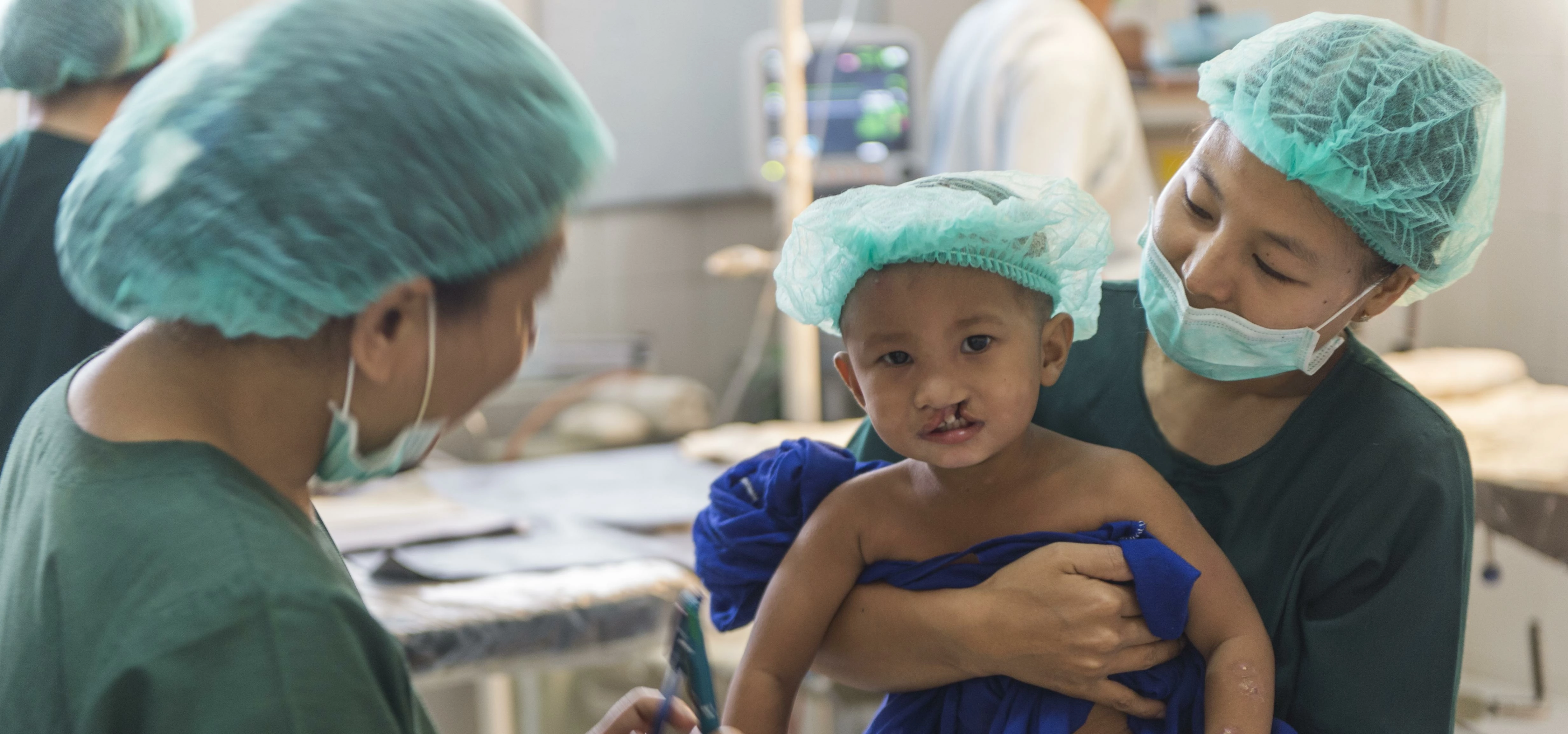
Partner Article
Charity edcuates about cleft lip & palate
It is estimated that more than 170,000 new babies with clefts are born in the developing world each year. These children live shame due to their unrepaired clefts and, more crucially, have difficulty eating, speaking, and even breathing. Despite this, there are still many people who are unfamiliar with the condition and the serious effects that it can have on a child’s life when left untreated.
In response to this global issue the international children’s charity, Smile Train, have put a unique model in place which is structured around the “teach a man to fish” principle:
‘Give a man a fish and you feed him for a day; teach a man to fish and you feed him for a lifetime.’
Based on this structure, Smile Train provides free training and education for local doctors and medical professionals in over 85 developing countries to help them perform regular cleft repairs within their communities. After receiving this training, local doctors and medical staff are then able to train other local doctors and nurses - creating a long-term, sustainable system. As a result of this highly effective approach, Smile Train are proud to say that they have been able to transform the lives of more than one million children to date, by giving them the power of a smile!
Smile Train CEO, Susannah Schaefer, comments on the condition, saying:
“It is often assumed that cleft lip and palate is only a cosmetic problem however, this is certainly not the case. It is also a very serious health and survival issue, as babies born with cleft lips and/or palates will often struggle with eating, breathing and speech development. Cleft surgery, and related cleft treatment, is therefore extremely important for the child to be able to lead a healthy and productive life.
Babies are born with clefts everywhere in the world. This includes the UK and other Westernised countries, but you rarely see children with unrepaired clefts in the UK because treatment is offered for free on the NHS and is typically carried out very soon after the child has been born.
In the developing world, where it is estimated that more than 170,000 new babies are born with clefts each year, many children are not as fortunate. Families in the developing world often do not have access to quality healthcare services or the resources to pay for proper cleft treatment, which is why it is more common to see children with unrepaired clefts in these countries.
The good news is that children with clefts all over the world can be helped with surgery that can cost as little as £150 and can take as little as 45 minutes.“
For more information about cleft lip and palate, or to learn more about Smile Train, visit www.smiletrain.org
This was posted in Bdaily's Members' News section by George May .








 Raising the bar to boost North East growth
Raising the bar to boost North East growth
 Navigating the messy middle of business growth
Navigating the messy middle of business growth
 We must make it easier to hire young people
We must make it easier to hire young people
 Why community-based care is key to NHS' future
Why community-based care is key to NHS' future
 Culture, confidence and creativity in the North East
Culture, confidence and creativity in the North East
 Putting in the groundwork to boost skills
Putting in the groundwork to boost skills
 £100,000 milestone drives forward STEM work
£100,000 milestone drives forward STEM work
 Restoring confidence for the economic road ahead
Restoring confidence for the economic road ahead
 Ready to scale? Buy-and-build offers opportunity
Ready to scale? Buy-and-build offers opportunity
 When will our regional economy grow?
When will our regional economy grow?
 Creating a thriving North East construction sector
Creating a thriving North East construction sector
 Why investors are still backing the North East
Why investors are still backing the North East